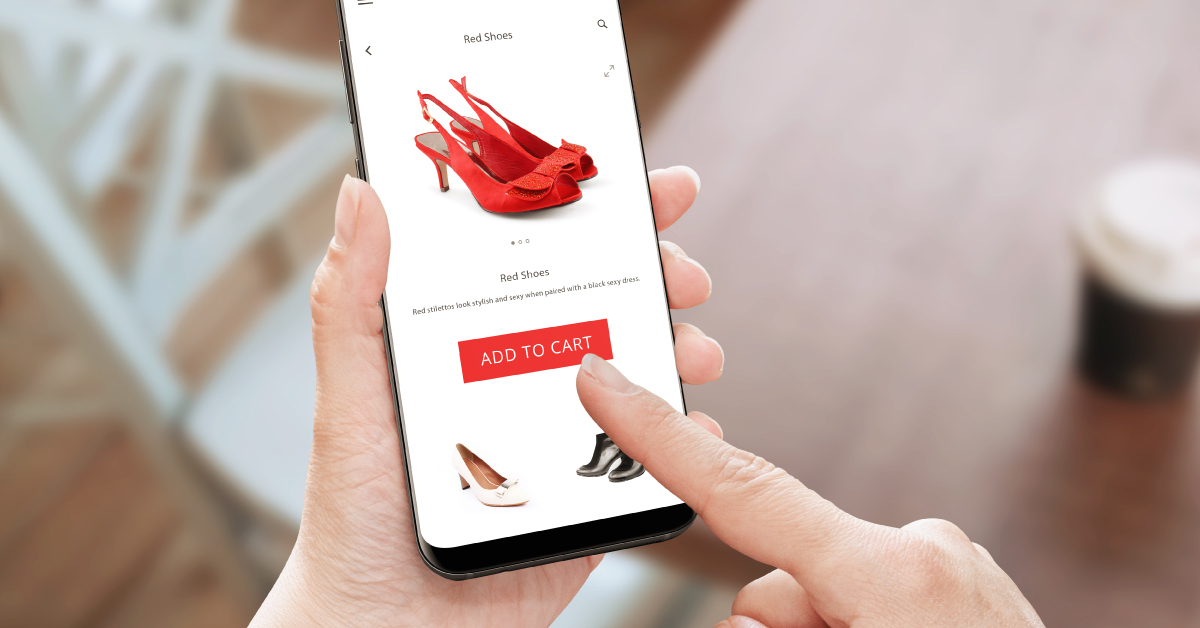It can be challenging to develop a social media marketing strategy that aligns with your business goals.
Anyone in the marketing business will tell you that goals are a critical element to any successful marketing strategy. Why? They ensure you’re not diving head-first into executing a strategy without knowing what you want to achieve by it.
Did you know that 67% of marketers consider measuring and tracking social media efforts to be one of their biggest challenges? Moreover, 31% of them haven’t been able to show the impact of social at all!
Setting social media goals can help to mitigate these challenges by ensuring you’re developing a strategy that gets results. What’s more, the more well implemented the social media strategy, the better the customer’s experience with your brand.
In today’s article, we’ll discuss how to set goals that relate to broader business objectives and provide five social media marketing SMART goals to help boost your business. Ready? Let’s go!
Aligning Social Media Goals and Business Objectives
When it comes to setting a social media marketing (SMM) goal, the first step is to outline your general business objectives. Once you’ve considered your broader business objectives, you can begin to align them with SMART goals that correspond to your daily social media activities.
Which brings us swiftly to our next point.
What makes a goal SMART?
If you’re familiar with inbound marketing practices, then you’ve probably heard of SMART goals before. SMART is an acronym that stands for:
- Specific: The more specific, the better. You can clearly understand what you’re trying to achieve.
- Measurable: Ensure you can measure your success.
- Attainable: Is your goal realistic?
- Relevant: Make sure your goals are closely aligned with your business objectives and support its vision and values.
- Time-specific: Your goal should have a deadline.
Once you’ve identified your SMART SMM goals, the next step involves…
Identifying goal metrics
The next step in the SMM goal setting process is to assign metrics. Metrics and social media key performance indicators (KPIs) allow you to track the progress and measure the performance of your social media campaigns.
There’s a diverse range of metrics that correspond with different social media goals. In the next section, we’ll put the whole process together and examine how to align business objectives, SMART goals, and performance metrics to ensure your social media marketing strategy grows your business.
5 Social Media SMART Goals for Your Business
For each of these points, we’ve outlined the most important broad business objectives for businesses investing in social media and some example SMART goals that correspond to them. Let’s jump in with the first goal on our list…
Increase brand awareness
Over 80% of marketers today consider increasing brand awareness to be the most pressing goal of their social media marketing efforts. Brand awareness refers to the lasting impressions brands make on a target audience.
This objective considers how much your brand is being talked about in comparison to your competitors, and how often followers are engaging with your content. With users spending an average of two hours on social media per day, it’s easy to see why social media is one of the most effective platforms to get consumer’s attention.
What are some SMART goals that align with this business objective? Here are three examples:
- Triple followers on Instagram within six months.
- Increase Facebook post shares by 20% by December.
- Post at least twice a week on all social media profiles for the rest of the year.
Trackable KPIs: Follow count, impressions, share of voice, reach, traffic.
Fortunately, social media enables marketers to achieve a more quantitative understanding of their brand awareness levels in the digital world. How? That little four-letter word: data.
Nowadays, most social media platforms feature native analytics and data tracking that marketing professionals can use to track brand awareness metrics. There are also plenty of third-party social media management tools like Hubspot that simplify this process and integrate the data with other business apps.

Generate leads and sales
Generating leads and sales is an important goal for any business. However, the direct link between boosting leads/sales and social media efforts can be difficult to pinpoint. That being said, when you can prove that your efforts lead to sales, the value of social media marketing is undeniable.
Increasing leads and sales means generating more revenue, and isn’t that the whole point?
It’s important to note that leads don’t always result in a purchase, but they do provide value. Someone might download a free resource, subscribe to a YouTube channel, or sign up for an email newsletter. This shows that the customer is interested in continuing their customer journey with your brand and essentially enters them into your sales funnel.
Let’s consider some SMART goals for generating leads and sales:
- Improve conversion rate on LinkedIn by 3% this quarter.
- Increase click-through-rate on Facebook CTAs
- Increase email newsletter sign-ups by 15% by June.
Trackable KPIs: Sales revenue, clicks, lead conversion rate, non-revenue conversions, email sign-ups.
To achieve this goal, you’ll need to focus on how you direct your social audience to relevant landing pages, how impactful your call-to-actions are, and who your target audience is.
Increase community engagement
Encouraging your audience to interact and converse with your brand is key to building strong, long-lasting relationships.
Community engagement allows businesses to define their brand voice and make meaningful connections with customers at every stage of their journey. What’s more, social media engagement enables you to gauge consumer perceptions of your brand and find new ways to deliver valuable content that’ll click with them.

Sounds easy enough, right?
Unfortunately, increasing community engagement isn’t as simple as it seems.
We live in a world of instant gratification and minuscule attention spans. Social media users scroll past hundreds, even thousands (depending on how often you’re online) of posts every day. How can you ensure your social media efforts are engaging your target audience and boosting growth?
Setting SMM goals allows you to track your social media efforts. If your overarching business goal is to increase community engagement, example SMART goals might include:
- Increase post shares on Facebook by 50% this year.
- Increase Instagram Live viewers by 20% in the next quarter.
- Improve social media click-through-rates by at least 10% this month.
KPIs to track: Likes, mentions, comments, shares, live viewers, web traffic from social media.
To boost community engagement, we suggest focusing your social media efforts on filling your editorial calendar with valuable and relevant content; posting regularly and at the right time; and keeping up with digital trends to engage your audience with the most appropriate mediums.
Grow your audience
With over 3.8 million users worldwide, it’s no surprise that social media is one of the best mediums for brands looking to grow their audience. In today’s digital world, growing your audience means being available across a range of digital channels and devices.
Once you find your social media audience, you’ll need to deliver consistently high-quality content, nail down your optimal publishing frequency, and come up with exceptional content marketing campaigns to keep your audience on their toes.

When it comes to growing your audience, you should think about running contents or influencer campaigns, including visuals with each post, and leveraging the power of video marketing. Also consider using hashtags, encouraging tagging, and implementing an SEO strategy to boost visibility.
SMART goals might include:
- Boost the number of followers on Instagram by 500 in the next month.
- Increase post impressions across socials by 20% this quarter.
- Improve social shares for blog articles by 10% within six months.
Trackable KPIs: Mentions, tags, comments, follower counts, the share of voice, engagement rate.
Increase website traffic
You might be surprised to know that the click-through-rate (CTR) for social media is lower than most other sources of web traffic. Recent evaluations of social media metrics found that the CTR for social media in the second quarter of 2020 was just 1.3%. That being said, many marketers still manage to use social media to drive website traffic.
Businesses must understand their social audience’s behavior once they become website visitors. Whether they sign up for a newsletter or make a purchase, this information will allow you to determine overall ROI and better understand which forms of content achieve the best results.
You can track how your social efforts are driving traffic with tools such as Google Analytics which shows you the number of visits from each channel, bounce rate, and much more. This provides a comprehensive overview of how your socials are driving website traffic, allowing you to make data-driven decisions about future campaigns and strategies.
SMART SMM goals for increasing website traffic might include
- Improve Facebook post CTRs by 1.5% this quarter.
- Increase social media CTR across channels by 4% this year.
- Increase local website traffic by 5% in the next 6 months.
Trackable KPIs: Website traffic, clicks, conversions, product trials, and email subscriptions.
Ready to start creating your social media marketing goals?
SMART goals are a vital part of developing a strong social media strategy that will result in long-lasting customer relationships, better brand engagement, and increased ROI.
Remember that it’s an ongoing process, so you’ll need to continuously update your marketing strategies to correspond with digital trends and changes in customer behavior.
When done well, social media is a powerful tool that will facilitate growth in all areas of your business.
So, are you ready to grow your business with social media?
Download our free buyer persona template today and get to know your social media audience

